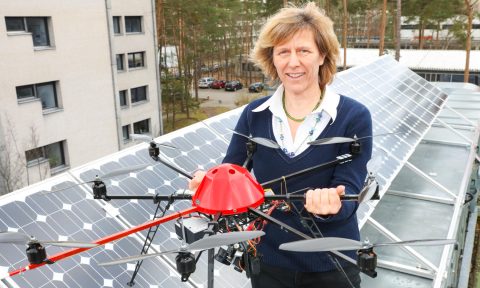Smart Solutions: AI’s Role in Enhancing Solar Power Reliability

As solar panels silently harness the sun’s energy, behind the scenes, Artificial Intelligence is quietly ensuring their longevity and unwavering reliability.
Our “High-throughput characterisation and modelling for PV” team is at the forefront of research aiming to enhance the reliability of solar installations using AI-driven methodologies. The focus is on detecting potential damage to the protective plastic film on the back of modules, which, if compromised, can lead to moisture penetration and subsequent automatic shutdown of the solar system. The researchers employ three key strategies, including non-destructive field measurements, high-resolution drone cameras, and the application of AI.
Dr. Claudia Buerhop-Lutz specifically emphasizes the significance of AI in early fault detection. The team has developed a novel method for assessing the condition of the protective films through infrared measurements in the field, utilizing a comprehensive library created from laboratory analyses of over 30,000 modules. Drones equipped with AI-driven capabilities, such as thermography and electroluminescence measurement, contribute to aerial monitoring, enabling the identification of hotspots and hidden defects on the front side of solar panels. The researchers stress the importance of AI in predictive maintenance, analyzing monitoring data to pinpoint performance deficits and specific fault patterns. Ultimately, the AI-centric approach aims to make green electricity generation through photovoltaic systems more reliable, aligning with the broader goal of achieving at least 80% of energy from renewable sources by 2030. You can read more in the latest issue of effzett – Forschungszentrum Jülich’s Magazine.
